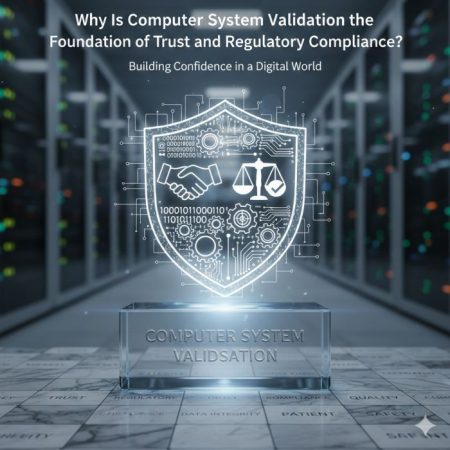Secure web gateways (SWG) provide a unified platform for securing network traffic. Like firewalls, they inspect encrypted traffic for malicious content and block access to known threats. SWGs also prevent data leaks by enforcing security policies across the entire internet. They work with other cybersecurity technologies, such as firewalls, IPS and DNS.
Cybersecurity Technologies
Security
Secure web gateways (SWG) monitor and block malicious websites, malware, or other Internet traffic that may result in network intrusion. They can be software, hardware or virtual appliances on the network perimeter or in the cloud. SWG security measures terminate and proxy all web traffic, inspecting it through multiple security checks, including URL filtering, anti-virus scanning, sandboxing, data loss prevention, cloud access security brokers (CASBs), and other integrated technologies. They also provide web isolation, preventing users from opening suspicious websites containing malware or phishing attacks.
Moreover, they can decrypt SSL traffic to scan for malicious content or code. It is a critical aspect of cybersecurity, as around half of all cyberattacks and malicious traffic use encryption.
SWGs can also inspect email attachments and websites to determine if they contain unauthorized or malicious content. These features help prevent credential theft and malware infection from unauthorized files, such as malicious links or scripts embedded in email messages.
SWGs also include data loss prevention functionality to protect sensitive data, such as credit card information and medical data, from being stolen or exported outside the organization. It can be crucial to organizations that store data in the cloud and rely on remote workers to access it.
Encryption
Encryption is one of the primary ways a secure web gateway protects data. It ensures that only people who have the right key can decrypt it. It protects user privacy and ensures regulatory compliance. The encryption process is simple and uses algorithms to convert raw data into an encrypted string of numbers that no one else can read. It helps to keep private information safe from hackers and internet service providers. Typically, encryption is used to protect sensitive personal data or business applications. It can also help to prevent malware from entering the network and causing a security breach. Some companies, especially government agencies, require encryption to comply with privacy laws or data security policies. Encryption is often needed under compliance standards such as HIPAA and PCI-DSS. While encryption protects personal information, it can impact performance. For example, it can cause delays in low-bandwidth locations, negatively impacting productivity and frustrating users. A secure web gateway can also perform URL inspection for malicious content, increasing visibility into threats and attacks in encrypted traffic. It also enables organizations to inspect cloud-based traffic to reduce the risk of blind spots. A secure web gateway is ultimately critical to any company’s cyber defense strategy. It protects network perimeters from unauthorized access, prevents malware infections and unauthorized user behavior, and enforces security policies.
Monitoring
Monitoring is an essential aspect of how a secure web gateway works. It monitors traffic and inspects it for malicious content or threats. In this way, it can help organizations to keep their networks safe from cyberattacks. Unlike a firewall, which sets rules to govern data that enters or leaves the network, a secure web gateway inspects traffic at the application level to detect malicious intent. This inspection makes it possible to identify and block attacks in real-time. A secure web gateway can be implemented on-premises, in the cloud, or as a part of a more comprehensive security solution. Some are software-only, while others are hardware devices on the network perimeter or endpoint devices.
The secure web gateway intercepts incoming and outgoing Internet traffic, checks it against corporate security policies, and filters content for compliance with policy guidelines. It also protects against malware and phishing attacks as well as data leakage.
In addition to enforcing company-acceptable web usage policies, a secure web gateway prevents users from accessing P2P applications often used for downloading pirated content and other activities. It can be done using an intrusion prevention system, an endpoint protection firewall or application control, and device control.
A secure web gateway is one of the most critical cybersecurity tools an organization should have to protect its networks. It’s a vital component of a Zero Trust Secure Access Service Edge (SASE) platform that helps to keep confidential information and data systems protected at all times.
Management
A secure web gateway (SWG) works to protect companies from cyber threats and data breaches. It filters unsafe content from internet traffic and enforces corporate security policies. SWGs can be deployed as software, hardware appliances, or cloud-based SaaS applications. A top-rated secure web gateway should analyze traffic in real-time to localize and block higher security risk applications. It compares encrypted traffic to local and global threat lists and reputable sources. In addition, it should perform SSL inspection for greater control over encrypted web traffic. It should also allow admins to create granular security rules to ensure users only access approved applications. As a result, it can prevent malware from being injected into the network and stop unauthorized access to sensitive data. It also monitors users’ online activities to identify security risks, including unauthorized downloads of malicious software or websites with dubious reputations.
With social networking sites gaining popularity, organizations must monitor how employees use them. These websites can be distracting, especially if employees are working remotely.
A secure web gateway can block these websites and increase productivity. It can also prevent data loss by blocking unauthorized data export. It can also help organizations meet compliance standards like HIPAA and GDPR. It can also help businesses with a global workforce to stay connected and avoid latency.
For More: www.pittythings.com






